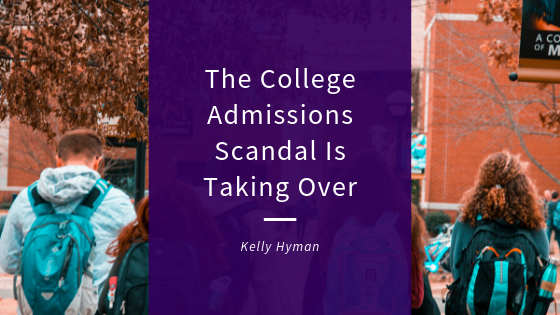It’s been nearly impossible to miss coverage of the college admissions scandal that has everyone in the nation talking. Since indictments were first announced at the beginning of March, coverage has been nearly non-stop due to the many prominent names facing charges, such as Lori Loughlin and Felicity Huffman who are best known for their acting roles.
Documents from those charges explain how wealthy parents were able to pay a company to help their children cheat on big exams, such as the SAT and ACT, and had answers corrected for them. It also described scenarios in which parents were able to bribe athletic recruiters by having their children pose as successful athletes, so they could gain admission by joining athletic teams, regardless if they had any actual experience playing those sports.
There have been many updates in the case since the initial announcement of the charges. So far, 13 defendants in the case have agreed to plead guilty to the charges after prosecutors presented them with plea deals. Another 16 defendants decided not to agree to those deals, believing prosecutors to be bluffing, and many now face additional charges such as conspiracy to commit fraud and money laundering.
Now, the scandal is raising questions all over the nation on how colleges and universities approach the admissions process, and how these kinds of high-priced briberies and donations on behalf of students have been an ongoing problem for years. Lawmakers in California have already proposed legislation to prevent wealthy families with connections from having advantages in the college admissions process.
There have not been many college admissions scandals as high profile as this one. Many parents who stand accused face jail time for their participation in these crimes, and I’ll be curious to see if the judges in these cases decide to make an example of some of the defendants to deter others from seeking these routes for admissions in the future.

